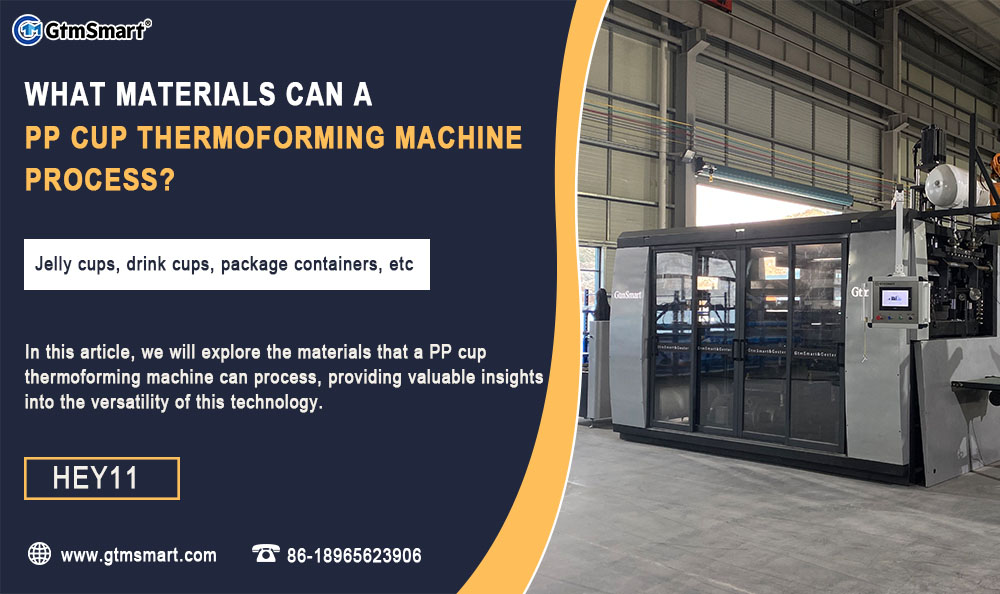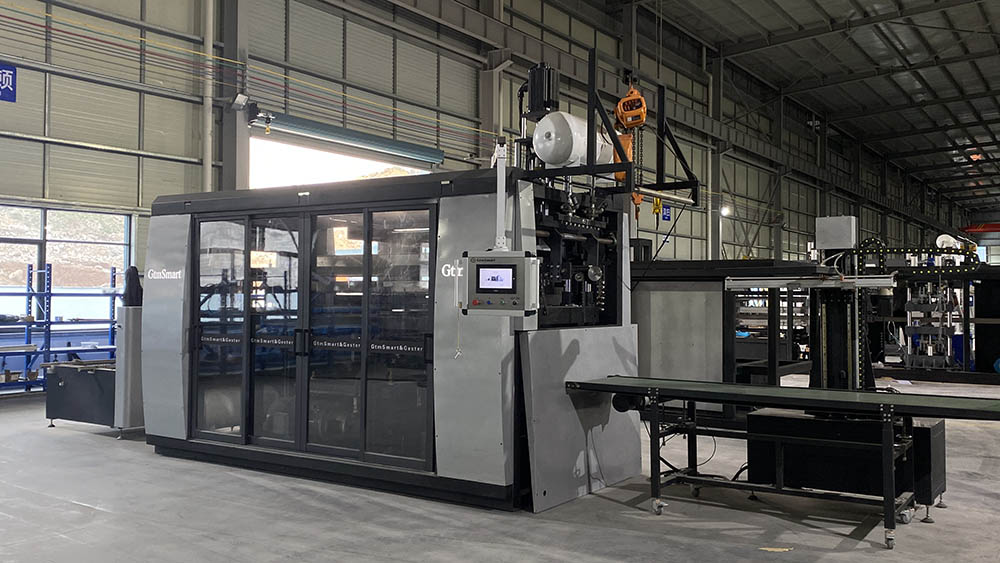What Materials Can a PP Cup Thermoforming Machine Process?
Thermoforming is a widely used manufacturing process for creating plastic products, and PP cup thermoforming machines play a crucial role in this process. These machines are designed to process a variety of materials, enabling the production of high-quality PP cups used in various industries. In this article, we will explore the materials that a PP cup thermoforming machine can process, providing valuable insights into the versatility of this technology.
Understanding the Capability of a PP Cup Thermoforming Machine
When it comes to thermoforming machines, PP cup machines are known for their flexibility and efficiency. These machines have the capability to process a range of materials, each with its own characteristics and applications.
1. Polypropylene (PP) – The Primary Material
Polypropylene (PP) is the most commonly used material in PP cup thermoforming. It is a versatile thermoplastic polymer known for its excellent balance of properties, including durability, transparency, and heat resistance. PP cups are widely used in the food and beverage industry due to their ability to withstand hot liquids and their hygienic properties.
2. PET (Polyethylene Terephthalate)
In addition to PP, a PP cup thermoforming machine can also process PET (Polyethylene Terephthalate). PET is a strong and lightweight material commonly used for packaging applications. It is known for its clarity, making it an ideal choice for products that require visibility, such as cold beverage cups or salad containers.
3. PS (Polystyrene)
Polystyrene (PS) is another material that can be processed by a PP cup thermoforming machine. PS offers excellent insulation properties, making it suitable for hot beverage cups and food containers. It is lightweight, rigid, and has a smooth surface, making it an attractive option for branding and labeling purposes.
4. PLA (Polylactic Acid)
PLA is a biodegradable and renewable material derived from plant sources. It is gaining popularity as an eco-friendly alternative for single-use packaging.
5. HIPS (High Impact Polystyrene)
Among the materials compatible with PP glass making machines, High Impact Polystyrene (HIPS) holds a significant position. HIPS is a versatile thermoplastic material known for its exceptional impact strength, making it suitable for applications requiring durability and resilience. In thermoforming, HIPS is often used for manufacturing cups, trays, and containers that need to withstand rigorous handling or transportation.
Other Compatible Materials
Apart from the primary materials mentioned above, PP cup machines can process a range of other materials, including but not limited to:
1. Polyethylene (PE): Known for its flexibility and moisture resistance, PE is commonly used for products such as disposable cutlery and single-use food packaging.
2. PVC (Polyvinyl Chloride): PVC is a versatile material used in various industries, including medical, construction, and packaging. In thermoforming, it is often used for blister packaging and clamshells.
Conclusion
PP cup thermoforming machines have the capability to process a wide range of materials, allowing manufacturers to produce cups that meet diverse requirements. From the versatile polypropylene to PET, PS, and other compatible materials, these machines enable the production of high-quality, functional cups. By understanding the capabilities of PP glass making machines, manufacturers can choose the most suitable materials for their specific applications, ensuring efficiency and customer satisfaction.
Post time: Jul-07-2023


